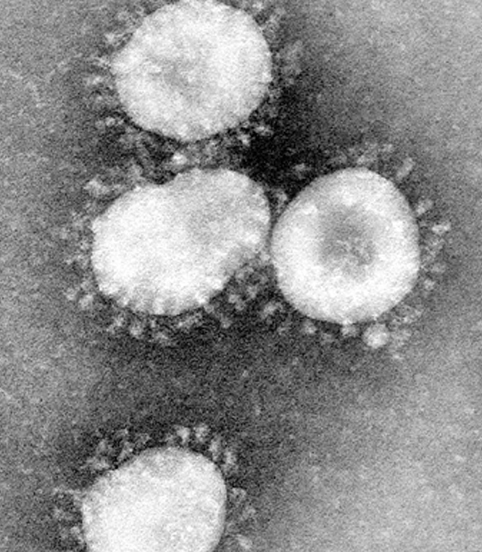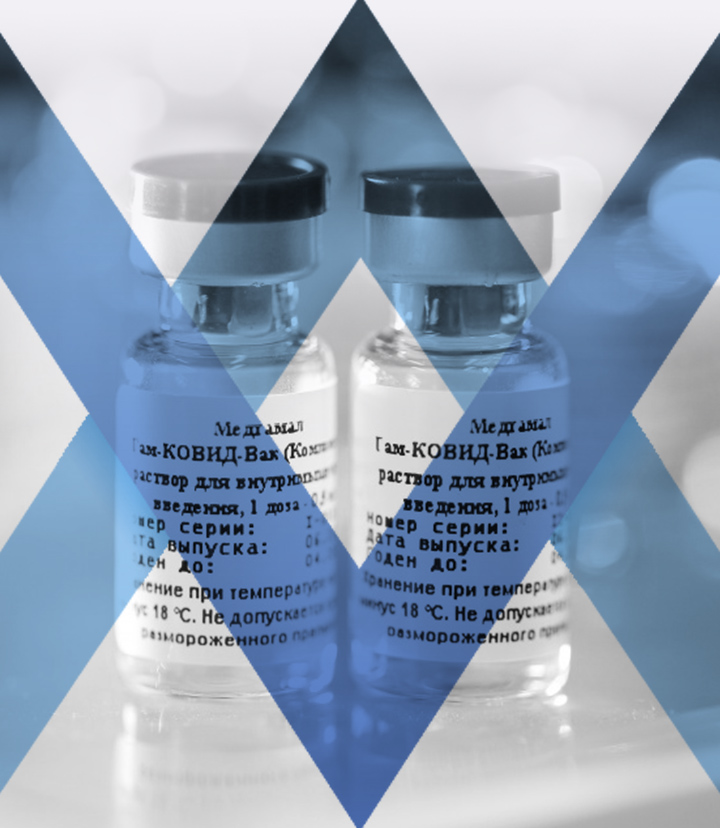
Corona Virus
Coronaviruses (Coronaviridae) represent a family of RNA viruses that can infect humans as well as some animals. Coronavirus gets its name from the crown-like images from the Electron Microscope of the protruding proteins on the surface of the virus which allow for interaction with human cells. In Latin, corona means crown.
Coronavirus is the cause of an infectious disease in humans called Coronavirus Disease 2019 (COVID-19). The virus that causes COVID-19 is a type of corona virus, akin to the virus that causes SARS (SARS-CoV).
The virus outbreak that emerged in Wuhan, the capital of China's Hubei region, in December 2019 spread rapidly and has since affected millions of people around the world, with the World Health Organization declaring the situation a pandemic in March 2020.
The most important feature of this virus is its speedy spread from person to person through droplets and by contact with infected surfaces. Although the disease often presents as asymptomatic, there are findings that it can be transmitted easily from person to person.
Organs most affected by COVID-19 are the lungs, brain, kidney and liver in particular. In adults, the clinical picture ranges from the common cold to bronchitis, pneumonia, severe acute respiratory distress syndrome and multi-organ failure resulting in death.
The virus outbreak that emerged in Wuhan, the capital of China's Hubei region, in December 2019 spread rapidly and has since affected millions of people around the world, with the World Health Organization declaring the situation a pandemic in March 2020.
The most important feature of this virus is its speedy spread from person to person through droplets and by contact with infected surfaces. Although the disease often presents as asymptomatic, there are findings that it can be transmitted easily from person to person.
Organs most affected by COVID-19 are the lungs, brain, kidney and liver in particular. In adults, the clinical picture ranges from the common cold to bronchitis, pneumonia, severe acute respiratory distress syndrome and multi-organ failure resulting in death.
exposure. The period after exposure and before symptoms appear is called the incubation period. Common signs and symptoms include:
Fever, cough, and tiredness; early symptoms of COVID-19 may include loss of taste or smell.
Other symptoms are:
Shortness of breath or difficulty breathing, muscle aches, tremors, sore throat, runny nose, headache, chest pain, conjunctivitis (a condition with red eye), nausea, vomiting, diarrhea, or rash.
This list does not cover all symptoms. Although the symptoms in children are similar to those of adults, the disease is generally mild.
The severity of COVID-19 symptoms varies from very mild to severe. Some patients may have only a few symptoms, and some may have no symptoms at all. Some may experience more negative symptoms, such as severe shortness of breath and pneumonia, about a week after the onset of symptoms.
Fever, cough, and tiredness; early symptoms of COVID-19 may include loss of taste or smell.
Other symptoms are:
Shortness of breath or difficulty breathing, muscle aches, tremors, sore throat, runny nose, headache, chest pain, conjunctivitis (a condition with red eye), nausea, vomiting, diarrhea, or rash.
This list does not cover all symptoms. Although the symptoms in children are similar to those of adults, the disease is generally mild.
The severity of COVID-19 symptoms varies from very mild to severe. Some patients may have only a few symptoms, and some may have no symptoms at all. Some may experience more negative symptoms, such as severe shortness of breath and pneumonia, about a week after the onset of symptoms.
Elderly individuals are at a higher risk of serious illness in cases of COVID-19, and the risk may increase with age. The risk of serious illness may be higher in people with pre-existing medical conditions.
Serious heart disease such as heart failure, coronary artery disease or cardiomyopathy,
Cancer,
Chronic obstructive pulmonary disease (COPD),
Type II diabetes,
Obesity or severe obesity,
Use of tobacco or related tobacco products,
Chronic kidney disease,
Sickle cell disease,
Weakened immune system from solid organ transplants,
Pregnancy
Cancer,
Chronic obstructive pulmonary disease (COPD),
Type II diabetes,
Obesity or severe obesity,
Use of tobacco or related tobacco products,
Chronic kidney disease,
Sickle cell disease,
Weakened immune system from solid organ transplants,
Pregnancy
Asthma
Liver disease
Being overweight
Chronic lung diseases such as cystic fibrosis or pulmonary fibrosis
Diseases of the brain and nervous system
Weakened immune system from bone marrow transplant, HIV, or some medications
Type 1 Diabetes
Hypertension
This list is not exhaustive. Other underlying medical conditions can increase your risk of serious illness from COVID-19.
Liver disease
Being overweight
Chronic lung diseases such as cystic fibrosis or pulmonary fibrosis
Diseases of the brain and nervous system
Weakened immune system from bone marrow transplant, HIV, or some medications
Type 1 Diabetes
Hypertension
This list is not exhaustive. Other underlying medical conditions can increase your risk of serious illness from COVID-19.
Receiving a vaccine can play an active role in preventing COVID-19 contraction, or preventing serious illness from COVID-19 when exposed to the COVID-19 virus.
The following measures are recommended to avoid exposure to the virus that causes COVID-19, and to reduce the risk of subsequent infection:
Avoid close contact (distance by 2 meters) with people who are sick or have symptoms.
Take extra care to keep distance between yourself and others (at least 2 meters), especially if you are in a high-risk category prone to serious illness. Remember that some people may have COVID-19 and may spread it to others unknowingly due to asymptomatic presentation or lack of awareness that they could be infected.
Try to avoid confined spaces or crowded environments that have poor ventilation.
Frequently wash your hands with soap and water for at least 20 seconds and/or disinfect them with an alcohol-based hand sanitizer that contains at least 60% alcohol.
Wear a face mask that covers your nose and mouth in public places such as grocery stores, where it is difficult to avoid close contact with others. If available, surgical masks can be used. N95 respirators should be reserved for healthcare providers.
When coughing or sneezing, cover your mouth and nose with your elbow or using a tissue. Throw away the tissue or handkerchief after use. Immediately wash your hands.
Avoid contact with your eyes, nose, and mouth.
If you are sick, avoid sharing common household items such as dishes, glasses, towels, and bedding.
should clean and disinfect high-contact surfaces such as door handles, light switches, electronic devices and countertops daily.
If you are not going to receive medical care and are sick, you must stay isolated from work, school, public places, and from others in your home. You must avoid public transportation, taxis, and car sharing.
If you are at a high risk of serious illness or have a chronic medical condition, talk to your doctor about other ways to protect yourself.
The following measures are recommended to avoid exposure to the virus that causes COVID-19, and to reduce the risk of subsequent infection:
Avoid close contact (distance by 2 meters) with people who are sick or have symptoms.
Take extra care to keep distance between yourself and others (at least 2 meters), especially if you are in a high-risk category prone to serious illness. Remember that some people may have COVID-19 and may spread it to others unknowingly due to asymptomatic presentation or lack of awareness that they could be infected.
Try to avoid confined spaces or crowded environments that have poor ventilation.
Frequently wash your hands with soap and water for at least 20 seconds and/or disinfect them with an alcohol-based hand sanitizer that contains at least 60% alcohol.
Wear a face mask that covers your nose and mouth in public places such as grocery stores, where it is difficult to avoid close contact with others. If available, surgical masks can be used. N95 respirators should be reserved for healthcare providers.
When coughing or sneezing, cover your mouth and nose with your elbow or using a tissue. Throw away the tissue or handkerchief after use. Immediately wash your hands.
Avoid contact with your eyes, nose, and mouth.
If you are sick, avoid sharing common household items such as dishes, glasses, towels, and bedding.
should clean and disinfect high-contact surfaces such as door handles, light switches, electronic devices and countertops daily.
If you are not going to receive medical care and are sick, you must stay isolated from work, school, public places, and from others in your home. You must avoid public transportation, taxis, and car sharing.
If you are at a high risk of serious illness or have a chronic medical condition, talk to your doctor about other ways to protect yourself.
Vaccines are perhaps our best hope in ending the COVID-19 pandemic.
Generally, vaccines aim to keep the body's defense mechanism active. The aim is that the weakened microbes in the injected vaccine are recognized by our body and easily destroyed by the antibodies produced. Afterwards, these antibodies continue to remain on guard for a while in our body. This way, an immunity against well-known microbes is created. In short it works to safely introduce and destroy the virus that causes COVID-19 to the body's immune system through these vaccines.
Examine
Generally, vaccines aim to keep the body's defense mechanism active. The aim is that the weakened microbes in the injected vaccine are recognized by our body and easily destroyed by the antibodies produced. Afterwards, these antibodies continue to remain on guard for a while in our body. This way, an immunity against well-known microbes is created. In short it works to safely introduce and destroy the virus that causes COVID-19 to the body's immune system through these vaccines.
Examine
Prevention of contracting COVID-19, serious illness, or death from COVID-19.
Preventing the COVID-19 virus from spreading to others.
Increasing the number of people protected against COVID-19 in the community, making the spread of the disease more difficult and contributing to herd immunity.
Preventing the spread and reproduction of the virus, which prepares an environment where the virus can mutate into more treatment resistant strains.
Preventing the COVID-19 virus from spreading to others.
Increasing the number of people protected against COVID-19 in the community, making the spread of the disease more difficult and contributing to herd immunity.
Preventing the spread and reproduction of the virus, which prepares an environment where the virus can mutate into more treatment resistant strains.
Source: https://www.mayoclinic.org/diseases-conditions/coronavirus/symptoms-causes/syc-20479963
